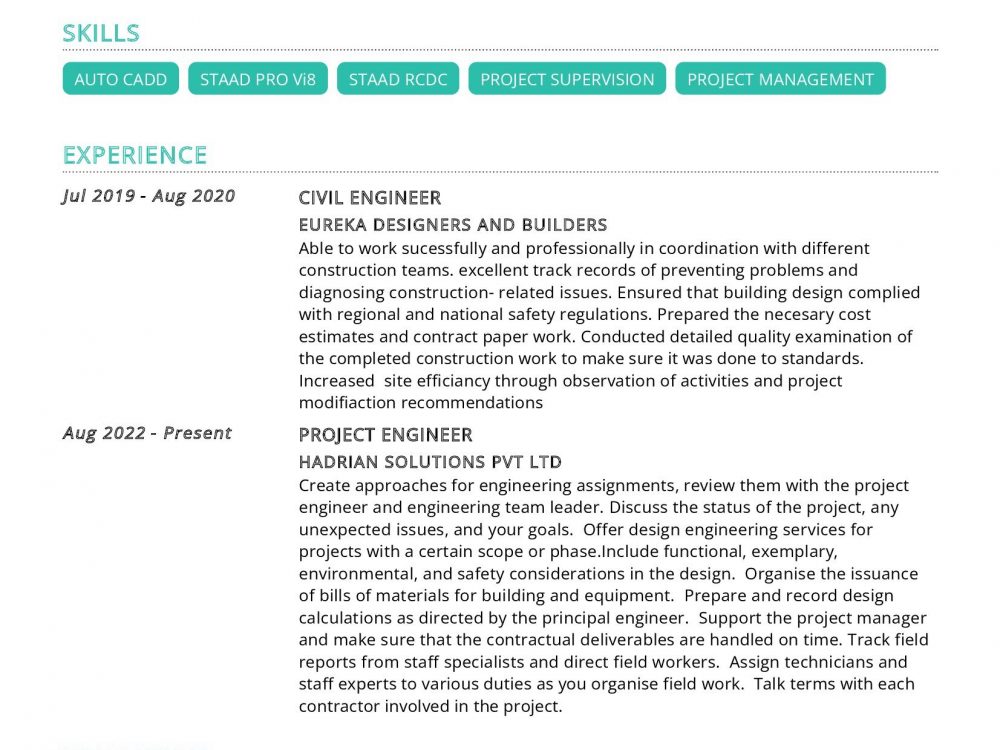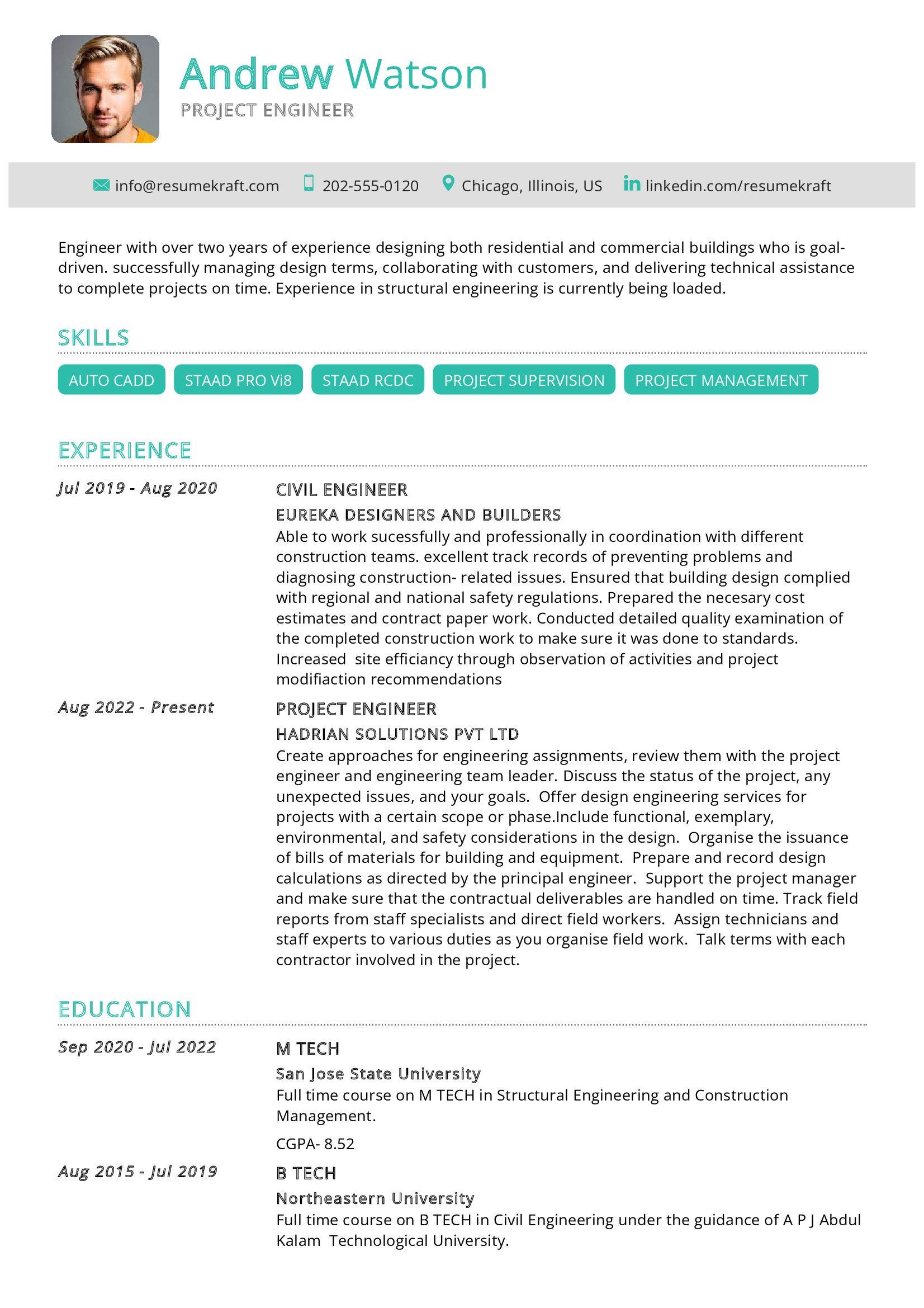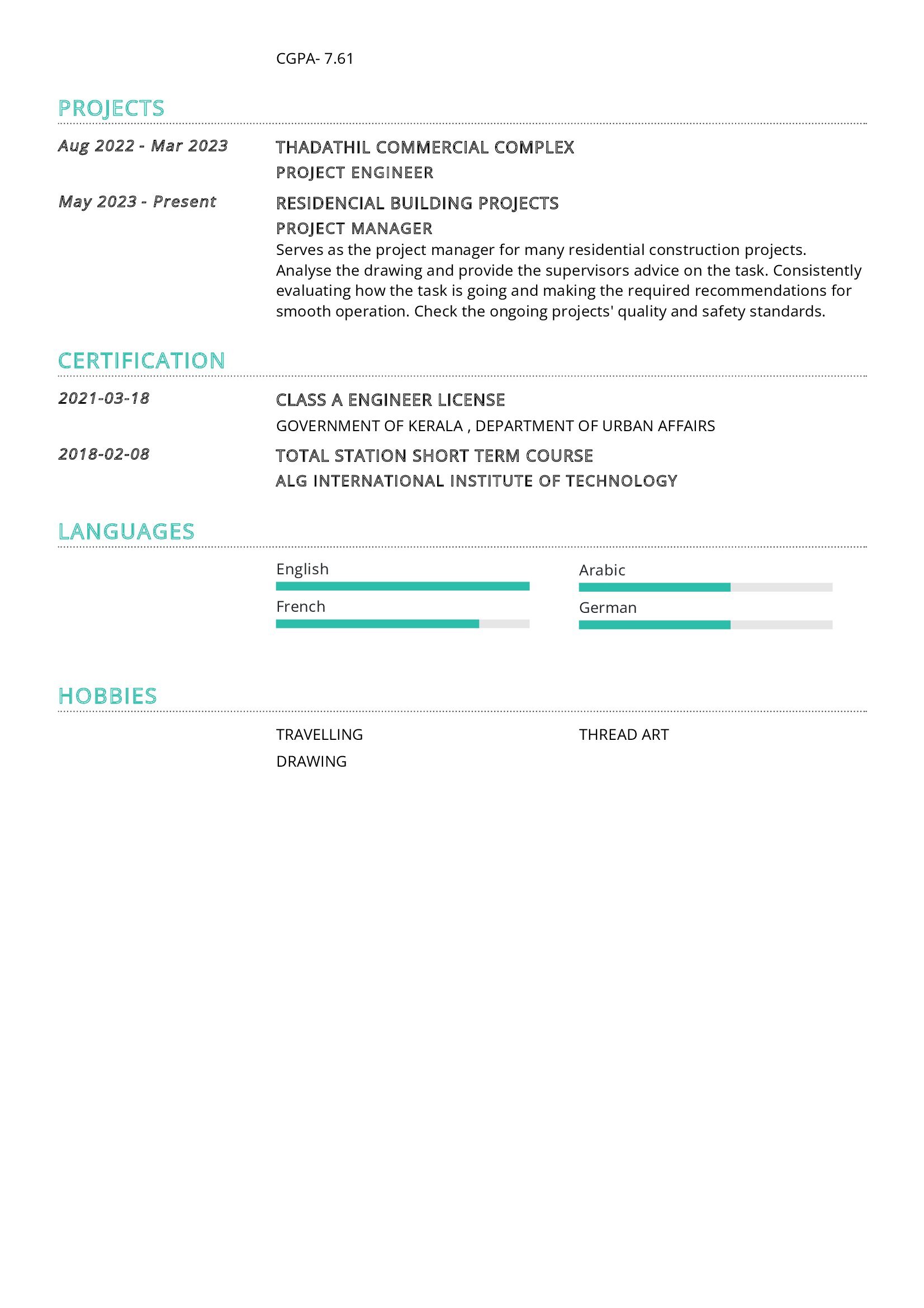Exploring the Role of a Project Engineer
As industries continue to advance, the role of a Project Engineer becomes increasingly vital in ensuring the successful execution of projects. This position demands a unique blend of technical expertise and managerial skills, making Project Engineers pivotal figures in various sectors. Let’s delve into the multifaceted role of a Project Engineer, examining the key responsibilities, job requirements, and essential skills that contribute to success in this dynamic field.
What are the Project Engineer Job Requirements?
Becoming a Project Engineer requires meeting a set of specific criteria, marking a journey that involves continuous learning and hands-on experience. Let’s explore the prerequisites one needs to fulfill to excel in the role of a Project Engineer:
- A Bachelor’s or Master’s degree in Engineering, showcasing a strong foundation in the technical domain.
- Profound knowledge of project management methodologies, including Agile and Waterfall approaches.
- Experience in engineering project execution, demonstrating a trajectory of increasing responsibility.
- Leadership and managerial skills, honed through experiences and possibly through courses and certifications.
- Proficiency in project management tools, such as Microsoft Project or Jira, essential for effective project planning and tracking.
- Effective communication skills, crucial for conveying complex technical information to diverse stakeholders.
- Problem-solving abilities, the capacity to identify and address challenges throughout the project lifecycle.
Additional certifications in project management, such as PMP (Project Management Professional), can significantly enhance your profile in the competitive job market.
What are the Responsibilities of a Project Engineer?
The role of a Project Engineer encompasses a wide range of responsibilities, blending technical know-how with strategic planning and execution. Let’s unravel the core responsibilities that define this role, each contributing to the successful delivery of engineering projects:
- Leading project planning and initiation, defining scope, goals, and deliverables.
- Collaborating with cross-functional teams to ensure effective communication and coordination.
- Utilizing project management tools to create schedules, allocate resources, and track progress.
- Managing project budgets, ensuring financial efficiency and adherence to financial constraints.
- Conducting risk assessments and implementing risk mitigation strategies throughout the project lifecycle.
- Ensuring compliance with industry standards and regulations, prioritizing safety and quality.
- Providing leadership and mentorship to project team members, fostering a collaborative and innovative work environment.
Each responsibility presents unique challenges and learning opportunities, contributing to the professional growth of a Project Engineer.
Project Engineer Resume Writing Tips
Crafting a standout resume is crucial for showcasing your qualifications and experience effectively. Here are some tips to help you create a compelling Project Engineer resume:
- Highlight your leadership roles, emphasizing instances where you successfully led engineering projects to completion.
- Detail specific projects you have managed, quantifying achievements and showcasing the impact on the organization.
- Include metrics to demonstrate your effectiveness in project management, such as meeting deadlines or staying within budget.
- List relevant certifications, emphasizing your commitment to continuous learning in the field of project management.
- Personalize your resume for the specific role, aligning your skills and experiences with the job description.
Each tip contributes to a resume that effectively communicates your expertise and positions you as a strong candidate for Project Engineer roles.
Project Engineer Resume Summary Examples
Your resume summary serves as the introduction to your career story, setting the stage for the reader. Here are some examples to inspire you:
- “Dedicated Project Engineer with over 8 years of experience, adept at leading cross-functional teams and delivering projects on time and within budget.”
- “Results-driven Project Engineer with expertise in Agile project management, consistently achieving project goals and exceeding stakeholder expectations.”
- “Experienced Project Engineer with a focus on sustainable engineering practices, committed to delivering high-quality projects that align with environmental standards.”
Each summary provides a snapshot of your career, highlighting your strengths and the value you bring to the role of a Project Engineer.
Create a Strong Experience Section for Your Project Engineer Resume
Your experience section is the core of your resume, narrating the story of your career progression. Here are some examples to guide you:
- “Led a multidisciplinary team in the successful completion of a major infrastructure project, resulting in a 15% increase in overall efficiency.”
- “Implemented Agile methodologies in project management, reducing project delivery time by 20% and improving team collaboration.”
- “Managed a diverse portfolio of engineering projects, consistently delivering on time and within budget, earning recognition for excellence.”
Each experience highlights your contributions and achievements, showcasing your ability to lead and deliver successful projects.
Sample Education Section for Your Project Engineer Resume
Your educational background is a foundation for your engineering expertise. Here’s how you can list your educational milestones:
- Master of Science in Mechanical Engineering, XYZ University, a journey of in-depth learning and specialization, 2016.
- Bachelor of Science in Civil Engineering, ABC University, the cornerstone of your engineering career, 2014.
- Project Management Professional (PMP) Certification, a testament to your advanced project management skills, 2018.
Each educational qualification represents a step in your journey towards becoming a proficient Project Engineer.
Project Engineer Skills for Your Resume
Your skill set is your toolbox, equipped with a diverse range of tools honed over the years. Here are the essential skills that a Project Engineer should possess:
Soft Skills:
- Leadership and team management, the ability to guide and motivate a diverse team towards project success.
- Communication and interpersonal skills, effective in conveying complex technical information and building strong relationships.
- Problem-solving abilities, adept at identifying and resolving challenges throughout the project lifecycle.
- Attention to detail, a meticulous approach to ensuring project plans are executed accurately.
- Adaptability and resilience, the strength to navigate unforeseen challenges and changes in project scope.
Hard Skills:
- Proficiency in project management tools, such as Microsoft Project, Jira, or Asana.
- Technical expertise in relevant engineering fields, such as civil, mechanical, electrical, or software engineering.
- Knowledge of industry-specific regulations and standards, ensuring compliance in project execution.
- Budget and resource management, the acumen to allocate resources efficiently and stay within project budgets.
- Risk management, the ability to assess and mitigate risks throughout the project lifecycle.
Each skill is a valuable asset, contributing to your effectiveness as a Project Engineer.
Most Common Mistakes to Avoid When Writing a Project Engineer Resume
Avoiding common pitfalls in resume writing is essential to present yourself as a strong candidate. Here are some mistakes to steer clear of:
- Using a generic approach, tailor your resume to showcase your unique fit for each specific role.
- Focusing solely on job duties, emphasize your achievements and the impact of your work on projects.
- Neglecting the importance of a cover letter, utilize it as an opportunity to further connect with potential employers.
- Overloading your resume with technical jargon, ensure that your accomplishments are easily understood by a diverse audience.
- Failing to proofread, present a polished and professional image by thoroughly reviewing your resume for errors.
Avoiding these mistakes ensures that your Project Engineer resume is both authentic and compelling.
Key Takeaways for Your Project Engineer Resume
As you craft your Project Engineer resume, keep these key points in mind:
- Emphasize your leadership journey, showcasing successful project completions and team achievements.
- Highlight your technical proficiency, demonstrating expertise in project management tools and relevant engineering fields.
- Detail the strategic initiatives you’ve spearheaded, providing evidence of your visionary approach to project execution.
- Include a section on continuous learning, showcasing relevant certifications and courses undertaken.
Finally, feel free to utilize resources like AI Resume Builder, Resume Design, Resume Samples, Resume Examples, Resume Skills, Resume Help, Resume Synonyms, and Job Responsibilities to create a standout application and prepare for the Project Engineer job interview.



